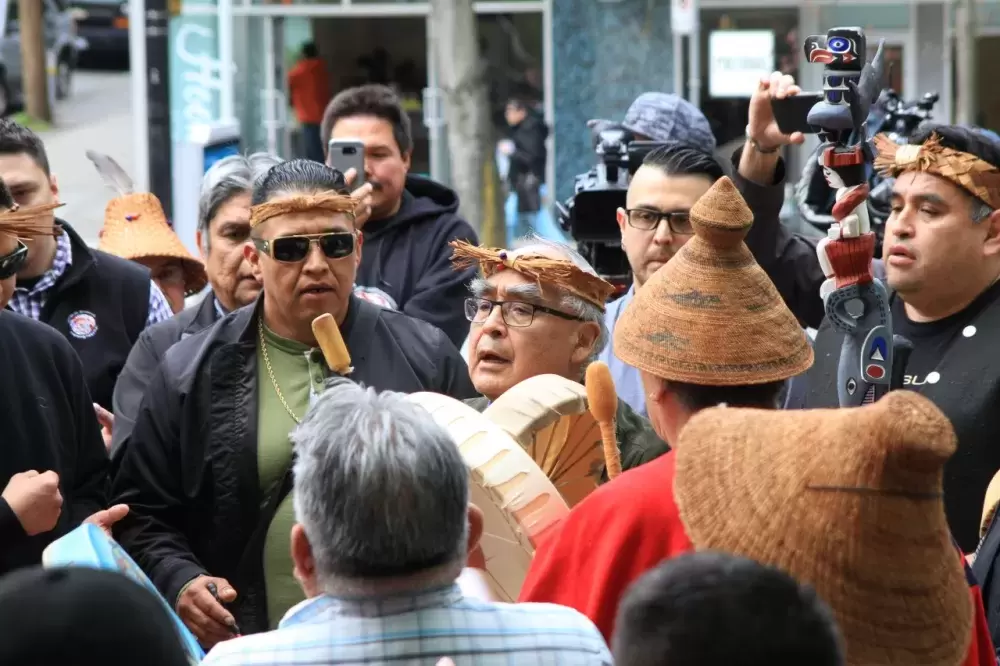The country’s fishing authority will be reviewing how it handles the recreational fishery, after a B.C. Supreme Court ruling determined that Canada had infringed upon the fishing rights of five Nuu-chah-nulth nations, says the DFO’s regional director.
Rebecca Reid, Fisheries and Oceans Canada’s regional director general, is in the early stages of assessing an April 19 court ruling that clarifies how the rights of five Nuu-chah-nulth nations will proceed off the west coast of Vancouver Island. Based on Justice Mary Humphries’ recent ruling, Reid expects changes to how the DFO prioritizes access to the west coast of Vancouver Island.
“The justice was very clear on that from the salmon allocation policy perspective,” she said. “We didn’t get that piece right. We need to look at the priority for recreational access and for the priority to Aboriginal commercial rights. How that works out from an allocation perspective is a part of the negotiations that we will continue to undertake with the nations.”
The recent judgement is the result of the justification trial, the second round of litigation that followed a 2009 ruling from B.C.’s highest court, which determined that the nations have the legal right to harvest and sell fish from their Hahoulthee (chiefly territory). The Nuu-chah-nulth nations involved in the trial include the Ahousaht, Ehattesaht/Chinekintaht, Hesquiaht, Tla-o-qui-aht and Mowachaht/Muchalaht.
These nations currently operate the T’aaq-wiihak fisheries, which means “fishing with permission of the Ha’wiih.” Over the last few years T’aaq-wiihak has run demonstration fisheries with catch allocations that comprised a small fraction of what the DFO allotted to the recreational and commercial sectors. In 2016 T’aaq-wiihak was allocated 7,558 chinook salmon for the west coast of Vancouver Island, while the Area G commercial had 56,494 and sports fishers got 60,000. For food and ceremonial purposes, Nuu-chah-nulth communities were allotted 9,248 chinook in 2016, bringing the region’s total to 133,300 for the west coast of Vancouver Island.
While Humphries’ recent judgement determined that the Nuu-chah-nulth rights were infringed upon, she concluded that the five nations’ fisheries should be of an “artisanal” in nature. This entails using smaller, labour-intensive vessels that depend on individual skill and local knowledge, operating within nine nautical miles from the shore “and aimed at wide community participation,” stated Humphries.
“The court has said we need to take those demo fisheries…and put it into the context of defined right, the right that has been described,” said Reid of Humphries’ judgement. “She’s quite specific about what it is that the fisheries will look like, so we need to take that information and work with the nations on essentially defining the fisheries consistent with that approach.”
While negotiations with the five nations have continued over recent years, the DFO has cited conservation as its No. 1 priority in managing the fisheries. But those in the federal department aren’t the best experts to manage the region’s resources, said Ahousaht’s lead negotiator Cliff Atleo.
“The world’s best managers are right here, you’re looking at them,” he said outside the B.C. Supreme Court in Vancouver on April 19.
“We have always known that DFO is not able to manage our fishery,” added Judith Sayers, President of the Nuu-chah-nulth Tribal Council.
With the fishing season already underway, Sayers stressed the urgency for the DFO and the Government of Canada to come to an agreement with the nations.
“Today we say to Trudeau and all of his cabinet that if you are serious about the implementation of rights, here is your chance,” she said. “We want to sit at the table, we want to negotiate this. If you can’t negotiate, we’re going fishing anyway.”
Fisheries and Oceans Canada is currently reviewing its Salmon Allocation Policy in the spirit of reconciliation, stated Minister Dominic LeBlanc after the justification ruling was released.
“We provided access already, but how do you take access from the commercial fishery and translate it into this multi-species small-scale type of fleet? When you consider the changes we need to do to the Salmon Allocation Policy, what the quotas and shares look like could change as well,” said Reid. “We’re working actively right now to try and provide more access to chinook for the nations for this upcoming season. I think that’s going to be a tangible outcome that will be felt very, very soon.”







